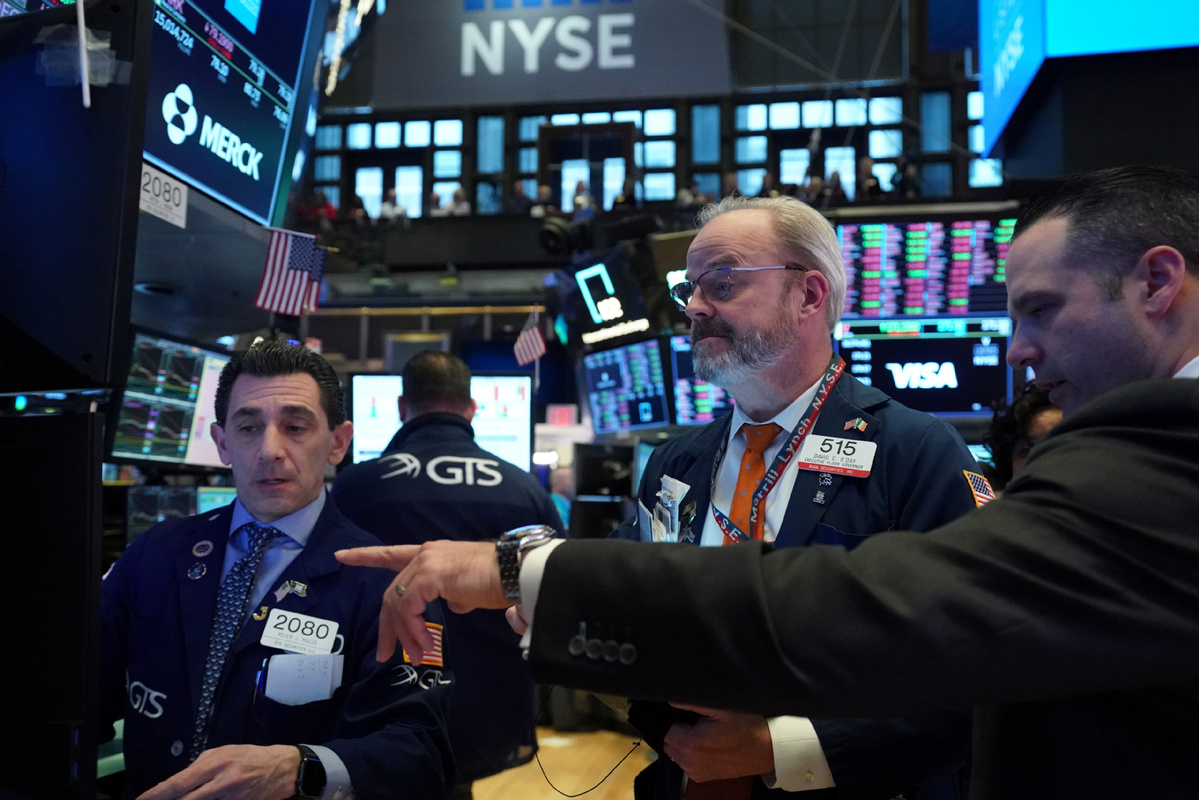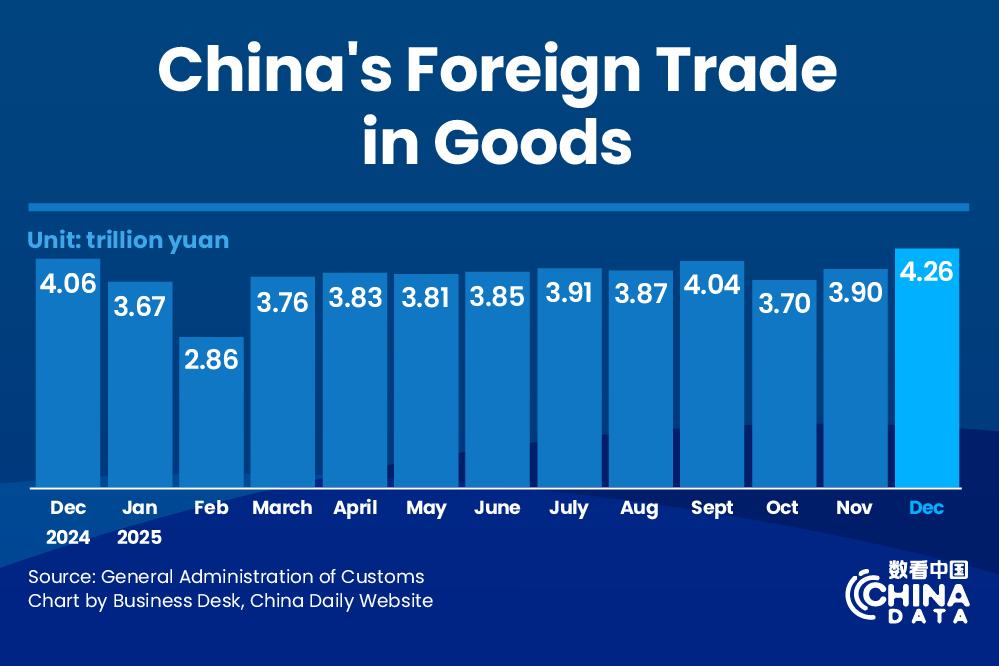Big selloff ends long bull market


Dow Jones average closes more than 20 percent below recent high, ending surge that began in 2009
The Dow Jones Industrial Average closed Wednesday more than 20 percent below its recent high, ending the bull market that began in 2009, as the blue-chip index gave back all gains made earlier this week.
Fears about the coronavirus pummeled stocks as the World Health Organization (WHO) declared the novel illness a pandemic. The virus, also called COVID-19, has spread to at least 112 countries, increasing the possibility of severe economic dislocation.
The Dow lost 1,464.94 points, or 5.86 percent, and closed at 23,553.22. The S&P 500 fell 140.85 points, or 4.89 percent, and finished at 2,741.38. The Nasdaq Composite declined 392.20 points, or 4.70 percent, to close at 7,952.05.
Just a month ago, on Feb 12, the Dow closed at an all-time high of 29,551.42.
All 30 Dow stocks declined Wednesday, including Boeing. The aircraft builder plunged $41.93, or 18.15 percent, to $189.08 after reporting 46 canceled jet orders in February, including 11 737 MAX jets for Air Canada.
A bear market is a correction of 20 percent or more. On Wednesday, the Dow closed 20.3 percent below its record high.
On Tuesday, the Dow had gained 1,167 points after losing a record 2,013 points on Monday.
The S&P will enter bear market territory if it closes below 2,708.92.
Analysts expect the volatility to continue as long as the threat of severe economic disruption from the coronavirus does.
The Chicago Board Options Exchange's volatility index rose 14.69 percent Wednesday, placing it close to the highest level in a year. The index, called the VIX, is a real-time gauge of the market's expectation for market volatility in the next 30 days.
"We expect major (higher-income) economies to slow sharply in the coming months, with stagnation in the US and contraction in the euro area in the second quarter," Goldman Sachs said in a research report.
"The main channels are increased supply chain disruptions in manufacturing industries dependent on Chinese-made components, a growing hit to consumer spending and business activity in areas that involve a high degree of face-to-face interactions, and a deterioration of financial conditions," the investment bank said.
Johns Hopkins University said the number of confirmed coronavirus cases worldwide had climbed to 124,663, including more than 1,100 in the US. A total of 4,594 people have died from the disease. But 66,669 diagnosed with the disease have recovered.
"In the past two weeks, the number cases of COVID-19 outside China has increased 13-fold and the number of affected countries has tripled," WHO Director-General Tedros Adhanom Ghebreyesus said at a news conference in Geneva, Switzerland.
"In the days and weeks ahead, we expect to see the number of cases, the number of deaths, and the number of affected countries climb even higher."
Investors fear the worldwide spread of coronavirus will disrupt production, curtail travel and erode retail sales, slashing revenue and making stocks at current prices too expensive.
However, there are early signs that production in China is resuming. That would strengthen supply chains, including Apple's, which warned it expects lower revenue this quarter due to disruption caused by the outbreak. On Wednesday, Apple's shares fells $9.91, or 3.47 percent.
On Wednesday, West Texas Intermediate crude declined $1.32, or 3.93 percent, to $33.02 a barrel.
"Economists often emphasize the positive effects of lower oil prices for the consumer via higher real income, which are real," Goldman Sachs said. "But in some economies — most importantly in the US — they are largely or entirely offset by the negative effects on the oil-producing sector and the associated hit to oil-exposed credit and equity names."
Copper, also considered an indicator of economic activity because it is widely used in electrical products and construction, fell 1.73 percent.
US President Donald Trump met with top banking officials Wednesday to discuss ways to stimulate the economy. Trump has proposed suspending payroll taxes to put more money in workers' pockets, relief targeted to hard-hit industries such as retail, restaurants, airlines, and cruise ships, and tax cuts to help small businesses better afford sick leave for employees.
Any spending proposal must be passed by Congress. Republicans and Democrats differ on how much money should be allocated and how it should be spent.
At a news conference after the meeting, Michael Corbat, CEO of Citigroup, said: "This is not a financial crisis. The banks and financial system are in strong shape and we are here to help."
Travel and leisure stocks took a hit Wednesday as individuals and companies limit travel during the coronavirus outbreak.
American fell 4.35 percent; United lost 5.99 percent; and Delta slid 6.20 percent.
Six Flags Entertainment, operator of about 25 theme parks across the nation, fell 14.93 percent.
Hotel chains also were clipped. Hyatt dropped 8.76 percent; Marriott International fell 8.97 percent; and InterContinental fell 7.81.
Royal Caribbean Cruises fell 14.15 percent.
Major bank stocks declined, with JPMorgan Chase losing 4.71 percent; Bank of America sliding 3.98 percent, and Citigroup dropping 8.62 percent.




































